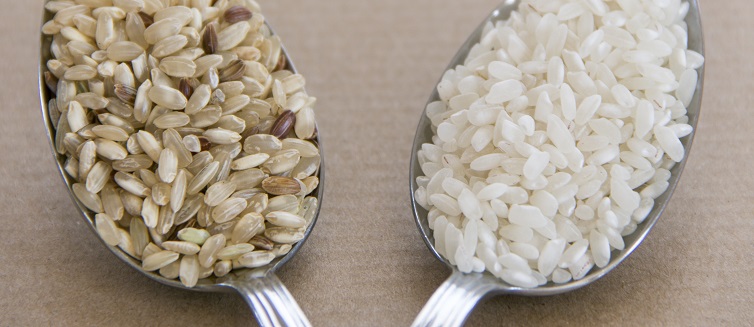Brown rice or white rice? What to choose?
If you are the one who thinks brown is better then this post is for you.
People call white rice empty calorie, unsafe for diabetic and high GI and what not.
Infact I was taught the same thing in my college too.
But in today’s time, we really need to look at food on the basis of
gut friendly,
bioavailability and
how it suits an individual than just seeing the calories or starch in it.
Why is it that japanese eat white rice all the time and still be lean?
Why we have a tradition of removing the husk from the rice?
We need to dig deeper into this.
Undoubtedly, brown rice has nutrient content in it than white rice but it’s bioavailability is extremely poor. Have you tried brown rice ever?
To begin with it takes a crazy lot of time to cook.
Secondly, it’s so heavy to digest. Many of my clients have told me that brown rice makes them gassy and bloated. This is because brown rice husk has a lot of phytic acid (anti-nutrients) makes it hard to absorb minerals in it.
Brown rice also has a lot of arsenic (chemical found in fertilizers) as compared to white rice. Basmati is one of the best form of white rice to eat. Also, white rice is naturally gluten free and has no antinutrients unlike other grains which makes it the safest option.
But there is a way of eating white rice
: A- It should always be eaten in limit (as per your carb requirement).
B- it should never be eaten alone. It has to be combined with fats and proteins to make it slow absorbed. C- It has to be eaten in cooked and cooled form (this improves gut bacteria 3times. That’s why khichadi is the best to eat when we fall sick).
sily digestible than brown rice , adds to the satiety value as well.
So if you know the right portion & right time to have rice , go ahead a enjoy the normal White rice.
#faq
#getthefact
#brownv/s White rice



